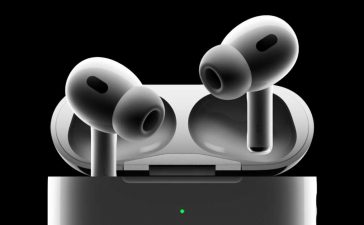The Delhi High Court has asked Google and Microsoft to file a review petition of its prior ruling which requires identification and removal of non-consensual intimate images without specific URLs. The tech giants argue that they lack the technology to identify such content.
“This Court is of the view that it would be appropriate for the appellants [Microsoft and Google] to file a review and bring the facts to the view of the single-judge,” a bench of Acting Chief Justice Manmohan and Justice Manmeet Pritam Singh Arora said in the order.
“In the event the appellants are aggrieved by the order of the single-judge in the review petition, they will be at liberty to seek revival of the present petitions,” the court said. The previous judgement was passed by the single-judge on April 26, 2023.
What are non-consensual intimate images
Non-consensual intimate images (NCII) are the intimate pictures of a person uploaded on the internet by a third party without the consent of the one who is in the photo. Google and Microsoft’s senior counsels Arvind Nigam and Jayant Mehta told the court that the tech companies do not have the technology to automatically detect an NCII and remove it
The lawyers added that the companies, however, have the technology to stop child porn but not that can help them identify if an image is consensual.
Google and Microsoft can remove URLs from appearing on their platforms (Google Search and Bing) by de-indexing them but the solution fails in the absence of a URL. The bench said since the two companies said their submissions were not taken on record, they should file a review plea.
While allowing them to file a review petition, the court also permitted the companies to pursue the appeal in case the review was unfavourable.
In 2023, the court laid down guidelines for the search engines two years after a case came to light in which a woman filed a plea for taking down her explicit images, which she said were taken and uploaded without her consent.
“This Court is of the view that it would be appropriate for the appellants [Microsoft and Google] to file a review and bring the facts to the view of the single-judge,” a bench of Acting Chief Justice Manmohan and Justice Manmeet Pritam Singh Arora said in the order.
“In the event the appellants are aggrieved by the order of the single-judge in the review petition, they will be at liberty to seek revival of the present petitions,” the court said. The previous judgement was passed by the single-judge on April 26, 2023.
What are non-consensual intimate images
Non-consensual intimate images (NCII) are the intimate pictures of a person uploaded on the internet by a third party without the consent of the one who is in the photo. Google and Microsoft’s senior counsels Arvind Nigam and Jayant Mehta told the court that the tech companies do not have the technology to automatically detect an NCII and remove it
The lawyers added that the companies, however, have the technology to stop child porn but not that can help them identify if an image is consensual.
Google and Microsoft can remove URLs from appearing on their platforms (Google Search and Bing) by de-indexing them but the solution fails in the absence of a URL. The bench said since the two companies said their submissions were not taken on record, they should file a review plea.
While allowing them to file a review petition, the court also permitted the companies to pursue the appeal in case the review was unfavourable.
In 2023, the court laid down guidelines for the search engines two years after a case came to light in which a woman filed a plea for taking down her explicit images, which she said were taken and uploaded without her consent.









